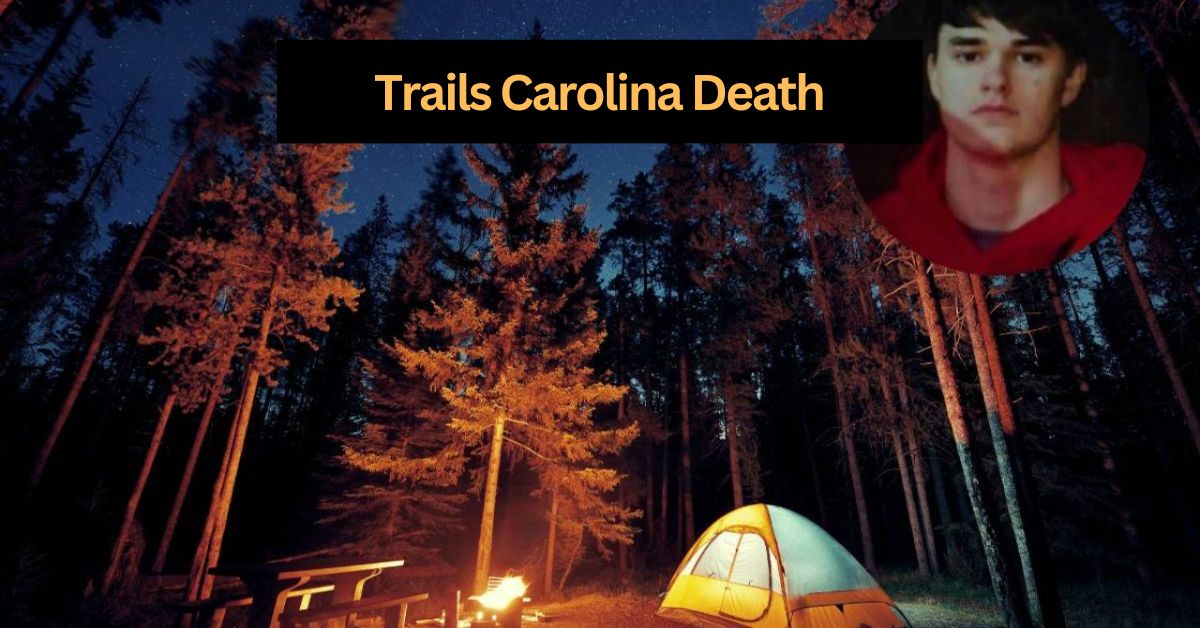
Trails Carolina Death
Trails Carolina, a wilderness therapy camp situated in the serene landscapes of North Carolina, has found itself under scrutiny and controversy, particularly concerning incidents that have led to the tragic loss of lives.
This article delves into the intricate details surrounding the keyword “Trails Carolina Death,” shedding light on the program, the controversies it has faced, and the measures taken in response.
Overview of Trails Carolina:
Trails Carolina, founded in 2008, aimed to provide troubled youth with a unique therapeutic intervention using the wilderness.

The program, nestled in the Nantahala National Forest, gained popularity as a destination for parents seeking help for their struggling children.
Context of the Trails Carolina Death Controversy:
The serene backdrop of Trails Carolina became overshadowed by controversy, sparking discussions about the safety and efficacy of wilderness therapy programs.
Understanding the context surrounding the controversies is crucial to unraveling the complexities of Trails Carolina’s journey.
Also Read: Fell Into The Arms Of A Mad Villain spoilers
Tragic Incidents:
- Alec Lansing’s Death (2014): The year 2014 marked a somber chapter for Trails Carolina as 17-year-old Alec Lansing lost his life during a camping trip. This incident raised questions about the safety protocols and emergency preparedness of the program.
- Margaret Smith’s Death (2021): In August 2021, another tragedy struck Trails Carolina when hiker Margaret Smith succumbed to hypothermia after getting lost on the Cold Mountain trail. The incident brought attention to trail safety, signage, and maintenance within the program.
Safety Concerns:
- Questions Raised After Incidents: The deaths prompted inquiries into the safety measures and practices at Trails Carolina, leading to concerns about the well-being of participants.
- State Investigations and Findings: In response to safety concerns, the North Carolina Department of Health and Human Services conducted investigations, revealing violations of state regulations related to staff training and emergency preparedness.
Changes and Improvements:
- Trail Maintenance and Signage: In the aftermath of the controversies, Trails Carolina implemented changes, focusing on improving trail maintenance and signage to prevent similar incidents.
- Enhanced Safety Measures: The program took steps to enhance safety, including improved emergency alert systems, increased patrols, and better communication of trail information to hikers.
Allegations of Abuse and Negligence:
- Reports from Former Students: Over the years, former students have come forward with allegations of abuse and neglect, citing harsh discipline, isolation, and inadequate care.
- Denial and Response from Trails Carolina: Trails Carolina denies these allegations, asserting that their methods aim to build character through challenging experiences in nature.
Legal Actions and Investigations:
- Aaron Bacon’s Case (1999): Trails Carolina faced legal consequences in 1999 after the death of 16-year-old Aaron Bacon, leading to involuntary manslaughter charges and a subsequent shutdown.
- Subsequent Lawsuits and Outcomes: The program faced additional lawsuits, with legal actions highlighting the need for increased oversight and regulation of wilderness therapy programs.
Choosing Safe Wilderness Programs:
- Accreditation and Licensing: Ensuring a program is accredited by reputable organizations like the National Association of Therapeutic Schools and Programs helps guarantee safety standards.
- Staff Qualifications: The qualifications and training of staff, including therapists and wilderness guides, play a crucial role in ensuring a safe and effective therapeutic environment.
- Medical Care and Safety Procedures: Programs with on-site medical staff, comprehensive safety procedures, and transparent communication prioritize the well-being of participants.
Conclusion:
The Trails Carolina Death controversies serve as a stark reminder of the delicate balance between the transformative potential of wilderness therapy and the need for stringent safety measures.
Navigating the complexities of such programs requires a discerning approach, emphasizing the importance of research, accreditation, and continuous evaluation to ensure the safety and well-being of participants.
FAQ’s:
Q1: Has Trails Carolina fully addressed the safety concerns raised after the tragic incidents?
Trails Carolina implemented changes, focusing on trail maintenance, signage, and enhanced safety measures to address and prevent safety concerns.
Q2: How does Trails Carolina involve families during a participant’s journey in the program?
Trails Carolina actively involves families through regular communication, updates on progress, and offers family therapy to ensure a holistic approach to healing.
Q3: What specific improvements were made in response to Margaret Smith’s tragic death in 2021?
Trails Carolina made improvements, including increased signage, trail marking, and safety measures, to prevent similar incidents and enhance overall participant safety.
Q4: Are there ongoing efforts to increase transparency in Trails Carolina’s practices and approaches?
Yes, Trails Carolina has redesigned its website to provide more detailed trail information and warnings, aiming for greater transparency and information accessibility.
Q5: How long does the Trails Carolina program typically last, and what is the aftercare support like for participants?
The program lasts between 3 to 9 months, and aftercare support is available to assist families in transitioning back to normal life, ensuring sustained positive changes.
Q6: Are there specific qualifications required for staff, especially those leading wilderness expeditions?
Trails Carolina ensures staff leading expeditions are well-trained and experienced in wilderness settings, contributing to the safety and effectiveness of the program.
Q7: How has the broader community responded to the changes implemented by Trails Carolina after the controversies?
While skepticism lingers, the changes implemented by Trails Carolina have resulted in fewer reported incidents, contributing to rebuilding trust within the broader community.
You May Also Like

Clay LeGrande MMI/SIPCO Net Worth – Complete Guide!
March 5, 2024
Fintechzoom – Importance in the Financial In 2024
February 22, 2024
Average Rating